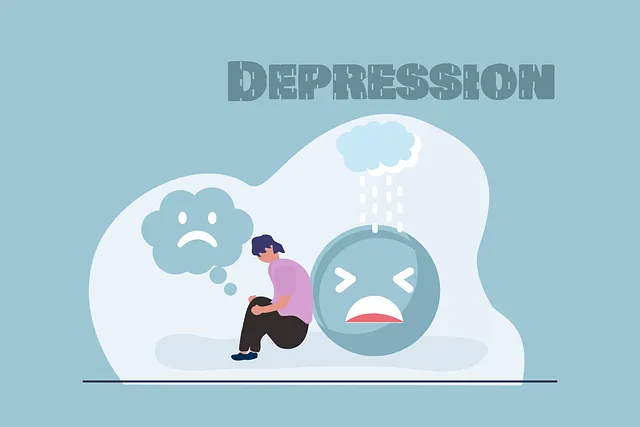Kaiser Permanente Mental Health Louisville is leading efforts to combat negative media representations of mental illness by promoting accurate and nuanced storytelling. They collaborate with media creators, advocate for diverse portrayals, and offer community education through workshops and campaigns. By sharing real-life stories and challenging stereotypes, Kaiser Permanente fosters empathy, reduces stigma, and encourages help-seeking behaviors in the Louisville community.
In today’s media landscape, the representation of mental illness plays a pivotal role in shaping public perception and understanding. This article delves into the significant impact of media portrayals on mental health attitudes, highlighting a case study from Kaiser Permanente Mental Health Louisville. We explore how stereotypes and misconceptions can be challenged, offering strategies for promoting accurate and compassionate mental health representation. Furthermore, we examine the crucial role that organizations like Kaiser Permanente play in driving positive change through their initiatives.
- Understanding the Impact of Media Portrayal on Mental Health Perception (Focus on Kaiser Permanente mental health Louisville)
- Identifying Stereotypes and Misconceptions in Popular Media Depictions of Mental Illness
- Strategies for Promoting Accurate and Compassionate Mental Health Representation in Media
- The Role of Organizations Like Kaiser Permanente in Shaping Positive Change: Case Study from Louisville
Understanding the Impact of Media Portrayal on Mental Health Perception (Focus on Kaiser Permanente mental health Louisville)

The media’s portrayal of mental illness significantly shapes public perceptions and understanding of various psychological conditions. Kaiser Permanente Mental Health Louisville, a leading healthcare provider, has recognized this impact and taken initiatives to challenge negative stereotypes often associated with mental health issues. By presenting more nuanced and accurate representations, they aim to foster self-awareness exercises that promote empathy and reduce the stigma surrounding these topics.
Through their programs and campaigns, Kaiser Permanente focuses on educating the community about emotional healing processes and trauma support services available. This approach encourages open conversations about mental health, allowing individuals to recognize their experiences and seek appropriate help. By challenging outdated media tropes, they contribute to a more supportive and informed society where people can begin their journey towards recovery with understanding and compassion.
Identifying Stereotypes and Misconceptions in Popular Media Depictions of Mental Illness

In popular media, mental illness is often depicted through stereotypes and misconceptions that fail to capture the complexity and diversity of lived experiences. These representations can range from dramatic and sensationalized portrayals to subtle yet harmful generalizations. For instance, many films and TV shows portray individuals with mental health conditions as either dangerously unpredictable or passive and helpless, neglecting the nuances in between. Such simplifications not only distort reality but also contribute to the stigmatization of mental illness, hindering understanding and empathy from the public, including those supported by Kaiser Permanente mental health Louisville.
Moreover, media often fails to differentiate between various mental health disorders, lumping them together under a single label without addressing their distinct characteristics. This homogenization perpetuates the false idea that mental illness is solely a personal struggle, ignoring systemic issues and the need for comprehensive support. To challenge these narratives, it’s crucial to promote authentic stories that showcase the resilience and diversity of individuals navigating emotional regulation and intelligence challenges, while advocating for more nuanced Mental Health Policy Analysis and Advocacy in media production.
Strategies for Promoting Accurate and Compassionate Mental Health Representation in Media

Promoting accurate and compassionate mental health representation in media is a multifaceted challenge that requires collaboration among industry professionals, healthcare providers, and consumers. Organizations like Kaiser Permanente mental health Louisville have been at the forefront of this initiative, emphasizing the importance of diverse and realistic portrayals. One effective strategy involves encouraging mental wellness journaling exercises that allow individuals to express their experiences and feelings openly, fostering a sense of community and understanding.
Additionally, media creators can benefit from seeking guidance on anxiety relief techniques and conflict resolution strategies to portray characters grappling with mental health issues in a nuanced manner. By integrating these approaches, media platforms can challenge stereotypes, increase empathy, and provide valuable educational opportunities for audiences. This holistic approach ensures that stories about mental illness are both compelling and accurate, reflecting the complexities of human experiences.
The Role of Organizations Like Kaiser Permanente in Shaping Positive Change: Case Study from Louisville

Kaiser Permanente, a leading healthcare organization, has been at the forefront of promoting mental health awareness and positive change in Louisville. Their comprehensive approach includes initiatives that address the broader community’s emotional well-being. Through partnerships with local organizations, Kaiser Permanente offers Stress Management Workshops, providing valuable tools for individuals to navigate stress and foster positive thinking. These workshops are designed to empower participants with effective strategies for managing mental health challenges.
The organization’s commitment extends beyond these workshops, as they regularly collaborate on campaigns that challenge stereotypes associated with mental illness. By showcasing real-life stories and success cases, Kaiser Permanente helps in de-stigmatizing mental health issues. This case study from Louisville demonstrates how a dedicated healthcare provider can lead by example, inspiring others to prioritize emotional well-being and initiate meaningful conversations around mental health.
In conclusion, accurately representing mental illness in media is a powerful tool for fostering understanding and compassion. As demonstrated by Kaiser Permanente mental health Louisville, proactive efforts to challenge stereotypes and promote positive narratives can significantly impact public perception. By implementing strategies that emphasize authenticity and sensitivity, the media industry can play a crucial role in reducing stigma and encouraging support for those living with mental health conditions. This collective effort ensures that stories of resilience and recovery resonate widely, reflecting a more accurate and compassionate portrayal of mental illness in our society.






